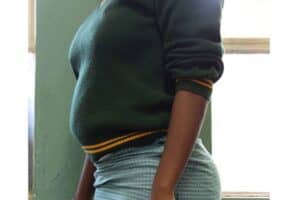Activists and unions have called on the department of education to address the rape crisis in South African schools.

Education experts and gender-based violence activists have blamed the authorities for failing to address the statutory rape cases taking place in schools throughout the country.
The experts were reacting to recent statistics released by the Education Labour Relations Council (ELRC), which indicated that from 2021-22 to 2025-26, 176 teachers were found guilty of sexual misconduct involving the harassment of girls and boys.
The statistics show that out of 211 reported cases of sexual misconduct, 35 teachers were found not guilty.
ELRC did not specify how many cases are pending or have not yet been addressed. The cases of statutory rape are on the rise.
Calls for stronger law enforcement and parental vigilance
During a recent sitting of the parliamentary portfolio committee on education, it was revealed that KwaZulu-Natal has 30 statutory rape charges levelled against teachers.
“There is no doubt that cases of statutory rape and sexual assault of pupils are a cause for great concern, not only for the authorities, but for society in general,” education expert Hendrick Makaneta said.
“We call on law enforcement agencies to work around the clock to ensure that the perpetrators are prosecuted and that justice prevails.”
Makaneta has urged parents of abused pupils not to accept bribes from the perpetrators and to allow the law to take its course for the ultimate well-being of the victims.
He also said teachers should be taken through regular workshops as a mechanism to help end such conduct.
“Schools should also provide psychosocial support to every pupil who is a victim,” Makaneta said.
ALSO READ: Hoërskool Centurion teacher fired after alleged rape case
National education bodies warn of a deepening crisis
National Association of School Governing Bodies general secretary Matakanye Matakanye said the sexual abuse of pupils by their teachers was a national problem that needed immediate attention.
“The department of basic education has the power to stop the crisis,” Matakanye said.
South African Democratic Teachers Union (Sadtu) national spokesperson Nomusa Cembi said her organisation was concerned about the rising number of cases of serious misconduct against teachers.
Cembi said Sadtu sensitises members on how they should conduct themselves through its code of conduct, which prohibits the abuse of children.
“We run workshops with members on the latest legislation amendments regarding sexual offences,” said Cembi.
“We were the first and only union to sign the Collective Agreement 1 of 2018, which provides for compulsory inquiries by arbitrators in cases of disciplinary action against teachers charged with sexual misconduct in respect of pupils, so that these matters can be dealt with and justice is served for pupils.
“The law must take its course as we cannot allow children to be violated by people who are supposed to play a parental role to them.”
The need for stricter vetting and national offender registers
Brenda Madumise Pajibo, director of the feminist organisation, Wise4Afrika, said the vetting of teachers was critical and cannot be overemphasised.
Pajibo said a national register of sexual offenders was a necessity.
“Lack of consequences leads to impunity and emboldens those who are charged with the responsibility of upholding ethical and upright leadership.
“Those teachers must be flushed from the system and be included in the register once due processes are completed.”
ALSO READ: ‘Pupil looked like an adult’ defence fails as Soweto teacher fired after impregnating teen
Vulnerable pupils and systemic gaps in teacher screening
Lorvica Matthews, spokesperson for the National Professional Teachers’ Organisation of SA, said while most schools were safe spaces, some have become hunting grounds for predators.
Matthews said vulnerable children include those from ordinary public schools, special-needs schools and pupils in hostels, where children are more isolated.
“The failure to vet teachers adequately is a serious systemic gap. Requiring teachers to pay for their own police clearance has delayed processes and allowed predators to remain undetected.
“Vetting cannot be a once-off event – individuals change over time and continuous monitoring is vital.”
Government acknowledges systemic failures and vows reforms
Minister of Basic Education Siviwe Gwarube, said the department was concerned about the statistics of statutory rape cases in schools and said there was a weakness in the system, as it still allows teachers charged with sexual misconduct to resign and be employed again somewhere else.
“One of the biggest challenges in the sector is that we need to make sure the reports lead to convictions. The key to ridding our schools of sexual offenders is having them in jail,” she said in a statement released by the parliament portfolio committee on education.
“While we acknowledge gaps in the system, we have taken steps to strengthen reporting, terminate and prevent re-employment of persons found guilty of statutory rape,” she said.
Shaheda Omar, a clinical psychologist at the Teddy Bear Foundation, said: “What we need to understand is that schools should be sanctuaries instead of some having become hunting grounds for predatory adults.”
NOW READ: Eastern Cape education launches probe into widespread sexual abuse allegations at schools






